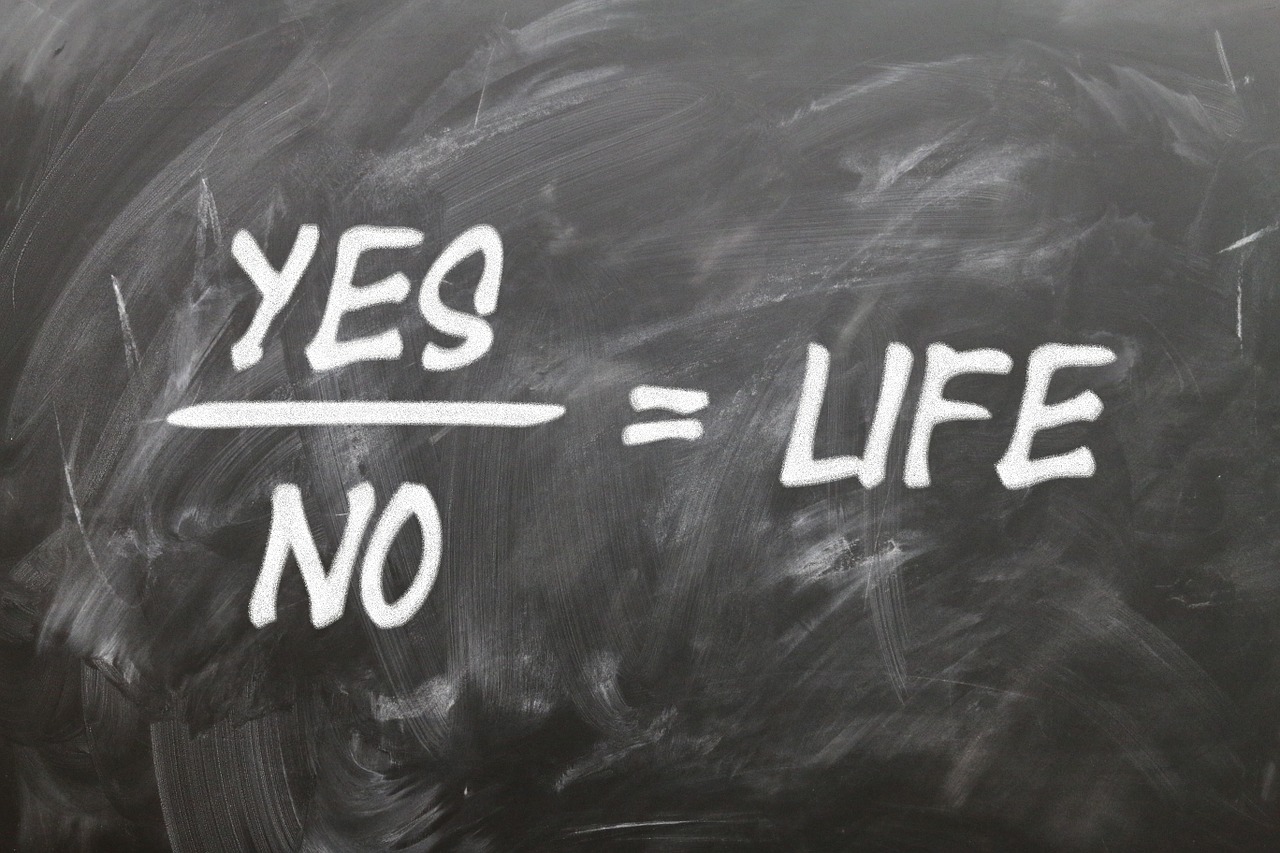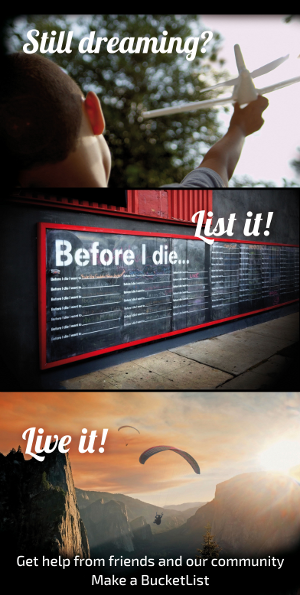Ask and you shall receive
You can’t simply dream your goals real and you can’t take the world on by yourself.
Understand these two principles and you can finally start to go after what you want.
Every person you will ever meet knows something or someone you don’t and because of that has something to offer. Asking for help, as this article will detail, is easy, human, and the only way to start the receiving process.
As people, we’re all part of a web of connections vast beyond our conception. We’re social creatures by nature and we would do well to accept it; cooperation is how the human race came to be where it is today. The age old of adage stressing ‘who you know’ holds truer now than ever before: be it opening opportunities by networking in business to or just trying to get an exercise routine to stick by making use of a workout buddy, two heads always prove to be better than one.
At their core, people truly like helping others. It feels good to give. The more we do it, the more connected we are. Now this doesn’t mean everyone will help anyone at any time, that’s not feasible, but what it does mean is that to get the ball rolling you need to start asking, and start asking now.
Know When to Ask.
It’s bad when someone asks for help before they need it, it’s even worse when they don’t take the help seriously. Don’t be that person. Before you ask anything of someone else, ask yourself a few things:
What are you trying to achieve? Have you spent time thinking this out?
It’s one thing to ask someone for help achieving a goal, it’s another to ask them to tell you how to achieve it. The more specific you are, the better you can make use of the help given to you.
Is now the right time? Are you prepared enough to really make use of the help being given?
Some favors are only given once. Luck is opportunity meeting preparation. Make the most of it.
Forget About the “No”
Given all the benefits that can come from it, it might be hard to imagine why anyone would avoid asking. Why would a person want to do it all alone, the hard way?

Things aren’t so black and white.
“Aid is a mixture of positive, supportive elements and negative, threatening elements. Embarrassment appears to be a central process in preventing people from seeking help, because seeking help constitutes a threat to self-esteem and emphasizes failures, inferiorities, and incompetencies”
It’s not just you. People really don’t like asking for help. On top of the poor image we think asking for help reflects on us, there’s also indebtedness. People are more likely to ask for a favor if they feel they’re in a position to return it later and as a result avoid asking help when they most need it. You’ve got to get past this. There are situations in life where going your own will be much more difficult than cooperating.
There’s no need to be a hero.
Remember those favors that are only given once? You’re not going to get them right off the bat. Some people may not be in the position or mood to help you out. That’s fine. It’s a favor — no skin off your back. In the end, the worst that can happen when asking for help is receiving a “no” and once you get past your initial fear of asking, you’ll realize that “no” really isn’t so bad.
Patience and Persistence Pay Off
If you’re ever to forget about the no, you’ve got to keep asking. There might be mountains of rejections one day and just the opposite the next, you’ve got to roll with the punches. If someone really can’t help you at the moment, maybe they can help you later. Follow up. just know when no means no. Bothering a person lowers the chance of them ever helping you and it’s bad for your favor karma.
Build Your Karma
Finally got a yes? Fantastic. But before you lose yourself in thought about the next step, take a second to appreciate the person helping you. Can you do anything to help in return? Ask if you’re not sure. If not, keep the favor in mind. Either they’ll ask for your help later or you’ll see that they need it and give without being asked; Remember, it’s not just you that doesn’t like being rejected, it might be that they’re too nervous to ask.
Exchanging favors is a win-win in more ways than you could imagine. Not only are you both moving closer to your goals, you’re also building a bond of cooperation that serves as the foundation for all close relationships. Remember, helping others isn’t about score keeping — you don’t do it because you owe them, you do it because you genuinely want to help.
How to Ask for BIg Favors
Who
Be a smart asker, don’t start by grasping at straws. Go for the people that you know are in a position to help; it could be that they have the same goals as you or that they simply know someone who does. The stronger the relationship, the better chance you have of getting an early yes.
When/Where
One of the most developed findings in social psychology this side of the 20th century is that individuals are less likely to give help when other bystanders are present. Commonly known as the bystander effect, this principle holds true when asking for help.
“Because of the many costs involved such as potential embarrassment, failure to properly handle or perceive the situation, or fears of being physically injured, people are frequently inhibited from offering help.”
Study after study shows that in a room full of people, everyone will try to pass the buck. So why not just send a text or give them a ring? At first glance, it seems like this would beat the bystander effect and also shave off some potential embarrassment of asking. Perfect! Right? Nope. Impersonal requests are about as successful as asking on a busy street. To be successful, you need to create a human connection. It’s harder to ask for help face to face, but it’s less likely to be rejected.
How
A well known way of asking is known ‘foot in the door’. Start small and then go bigger. If you need help in a big way, start by asking for a tiny favor that you know can return immediately. Once you’ve started the receiving process and have exchanged favors, a person is much more likely to help you again. A nifty, less known way to make your ask stand out is to be oddly specific. Known as the Pique technique, the idea goes like this: when asking for change, asking for 37 cents will get more compliance than just asking “for spare coins”. When asking someone to meet you, 7:23 will do better than 8:00. People are well accustomed to their routines especially in the case of conversation and interactions, a strange request has the ability to wake them up and catch their attention.

Finally, don’t beat around the bush. Don’t hint at wanting something and force a friend to play the guessing game, behavior like this can be annoying and potentially put someone off from helping you. Be kind, be genuine. Remember, you’re asking not demanding and you should be immensely grateful to any help you do get.
Asking in the Digital Age
Whether it’s in crime, travel, or the gym, it helps to have a partner; and in this brave new world, it’s easier to find one than ever. Remember, impersonal asks don’t work well for big favors, but in the case of small ones or a situation where you both will benefit, the internet can work wonders. There’s nothing like sharing a goal with another person: the highs, the lows, the feeling of success and shared motivation. Matching dreams is a great way to arm yourself against the inevitable periods in life where things gets hectic, blurry — keeping sight of your goal feels almost impossible. Ask your friends and followers for help on Facebook and Twitter. Bucketlist makes things easy: make a list of your life goals, help others with theirs, fulfill your own dreams and then bask in your awesomeness.
When it comes to matching dreams, asking can go a long way; and now you know how to ask like a pro, so go for it. Trust me, your friends will be glad you did.










Comments